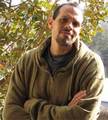Playlist: Chris Moore-Backman's Portfolio

Featured
A Bitter Harvest: California, Marijuana, and the New Jim Crow
From Chris Moore-Backman | Part of the Bringing Down the New Jim Crow series | 59:00
This documentary views Michelle Alexander's "The New Jim Crow: Mass Incarceration in the Age of Colorblindness" through the lens of California's marijuana industry.
Marijuana is the single largest agricultural commodity in California and it is the primary vehicle for the war on drugs' racialized arrest and incarceration system, which has our prisons bursting at the seams nationwide. Great numbers of predominantly white men and women grow, harvest, and process marijuana in California for distribution throughout the United States. Local law enforcement and the communities they represent - communities whose economies are marijuana-dependent - benefit from letting this part of the illegal process go mostly undetected, while the crackdown happens almost exclusively in poor inner-city neighborhoods of color.
Through interviews with Michelle Alexander, Stephen Gutwillig (Drug Policy Alliance), and Vincent Harding (renowned veteran of the African-American Freedom Movement), this program cracks open the question of why and how this discrepancy exists, and it explores some of its devastating consequences. It's a show that grapples head on with the reality of white privilege in the United States.

A Bitter Harvest views Michelle Alexander's "The New Jim Crow: Mass Incarceration in the Age of Colorblindness" through the lens of California's marijuana industry.
Marijuana is the single largest agricultural commodity in California and it is the primary vehicle for the war on drugs' racialized arrest and incarceration system, which has our prisons bursting at the seams nationwide. Great numbers of predominantly white men and women grow, harvest, and process marijuana in California for distribution throughout the United States. Local law enforcement and the communities they represent - communities whose economies are marijuana-dependent - benefit from letting this part of the illegal process go mostly undetected, while the crackdown happens almost exclusively in poor inner-city neighborhoods of color.
Through interviews with Michelle Alexander, Stephen Gutwillig (Drug Policy Alliance), and Vincent Harding (renowned veteran of the African-American Freedom Movement), this program cracks open the question of why and how this discrepancy exists, and it explores some of its devastating consequences. It's a show that grapples head on with the reality of white privilege in the United States.
On the Other Side of the Myth: A Conversation with Michelle Alexander and Tim Wise
From Chris Moore-Backman | Part of the Bringing Down the New Jim Crow series | 59:00
This second installment in the series titled Bringing Down the New Jim Crow features the first ever dialog between legal scholar Michelle Alexander and anti-racism educator Tim Wise. An engaging, provocative interchange touching on the prison-industrial complex, white privilege, Trayvon Martin, and the unceasing quest for racial justice in the United States. Produced by Chris Moore-Backman, with music by Joe Henry.

Some Thoughts On Mercy: An Essay on Race and Redemption, written and read by Ross Gay
From Chris Moore-Backman | Part of the Bringing Down the New Jim Crow series | 29:00
In this provocative radio essay, a commonplace encounter with racial profiling opens the door to the vast and painful reality of racism in the United States. A touching and unsettling personal account, Ross Gay's "Some Thoughts On Mercy" captures the lived experience of a black man on the lookout for humanity and redemption within the confines of our racist society. Testimony emblematic of an era echoing the names of black men, and boys, like Trayvon Martin, Michael Brown and Eric Garner.
 This 29-minute radio program features potent personal testimony from poet-essayist Ross Gay - testimony emblematic of an era echoing the names of black men, and boys, like Trayvon Martin, Michael Brown and Eric Garner.
This 29-minute radio program features potent personal testimony from poet-essayist Ross Gay - testimony emblematic of an era echoing the names of black men, and boys, like Trayvon Martin, Michael Brown and Eric Garner.
Inspired in large part by Michelle Alexander's book, The New Jim Crow, the growing movement to end the US system of mass incarceration, is largely responsible for carving out the space where such names can be heard. Beginning with a commonplace encounter in our racist society, Ross Gay's "Some Thoughts On Mercy" breaks open the murky and painful world of race that Alexander argues we need to enter together if we're going to successfully short circuit the cycle of racial caste in the United States. Through the eyes of Ross Gay, our journey into that world of racial hurt, degradation, and separateness holds out the fragile possibility of redemption.
"Some Thoughts On Mercy" was originally published in the July 2013 issue of Sun Magazine. This radio version of the essay has been truncated to fit a 29-minute format. The program is produced by Chris Moore-Backman and features original music by Stray Theories.